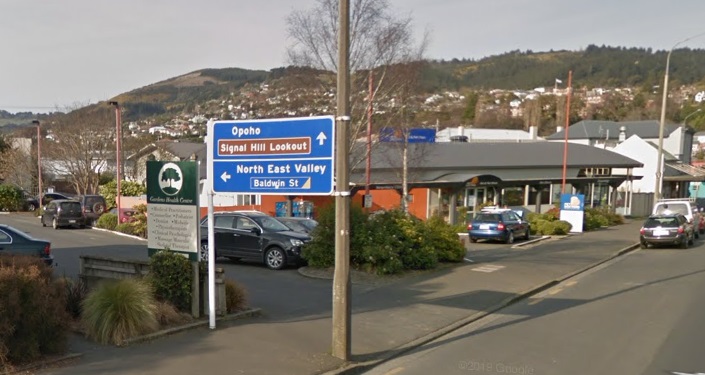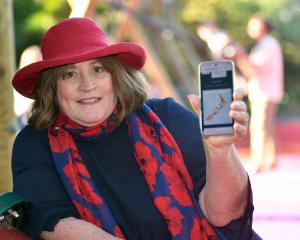A clip of an exchange between a radio show host and two listeners has gone viral on social media, after the callers argued it was their right to mispronounce Dunedin Māori place names.
Newstalk ZB host Marcus Lush was shocked to receive two calls during his show on Thursday night from New Zealand-born women who insisted on mispronouncing the Māori names of the places where they'd been born.
Even after being told the correct pronunciation, both callers made it clear they would never start pronouncing it properly and insisted that it was their right to say the place name the way they'd always been told to say it.
"If I told you how it was pronounced, would you do it?," the host asked the first caller, an 83-year-old woman from Ōpoho, Dunedin.

"No. Because it's mine. My region," the woman replied.
The caller insisted she meant "no disrespect to anyone" but the host pointed out it was disrespectful as he said the caller was "being wilfully ignorant".
"Like hell I am," she responded.
A second caller, from Mosgiel, rang up to express her solidarity with the other listener saying "an elderly person should be respected in the way she grew up".
"We don't talk like that down here," the caller said.
"Wow. You are extraordinary. This call almost should go into Te Papa," Lush replied. "You are deliberately misrepresenting a language."
Lush asked the listeners if they would pronounce the cheese "camemberte". The second caller said she wouldn't because she is "educated".
"No, you call it Camembert because it's how it's pronounced," the radio host answered.
With the woman insisting she was not pronouncing the names wrongly, Lush asked her who she think named the places.
"I couldn't care less," she replied.
The caller said she refused to pronounce place names "the way you people think it should be pronounced".
"Goodness gracious me," Lush replied, incredulous. "Why are you so threatened by this?"
The caller insisted she is not mispronouncing the names. "It's the way it is," she said.
The clip was uploaded to Facebook and has since gone viral, with more than 72,000 views and 3000 shares in less than 24 hours.
Social media users were, for the most part, shocked by the calls.
"Racism is alive and well in the south," one person said on Facebook.
"Do they not understand that these are Māori words? Like, Camembert is a French word... it's another language? They are absolutely adamant that they are correct in what they are saying. Pig headed, stubborn and IGNORANT. 83, 49 who cares! You're saying it wrong whether you grew up there or not," another person said.
"If you don't know, you don't know. But if you now know. You know. So why is it so difficult to go with the flow of what you now know," someone else commented.
"Oh gosh ... they both say 'because I'm educated'. Education goes beyond French classes at "Tyree" high school ladies. So I'm guessing they never educated themselves on why their areas were named as such?" another Facebook user added.
Comments
That talk back nights from 8/12 week days is trivia at it worst get the calls through for the quota makes no substance talk back.
Yes...drivel radio at its worst, but....still says a lot about the redneck South. I live in the Whakatu area and Maori place names are bastardised to the point of unrecognizable. Riwaka becomes reewalker, Atawhai is always artawhy Whakarewa is wackaraywah. Cringe worthy to hear it handed from generation to generation by local prominent surnames that have settled here so long ago.
The question I would ask Marcus is "why are YOU so threatened by some people who choose to keep pronouncing names same way as they done for past decades?"
Neslay or Nessiles ...Who cares?...It's chocolate!
The pronunciation of place names is primarily the business of the people who liv there. Parisians call their home city "Paree". English speakers dont. Southern Maoris say Aoraki for our tallest mountain: northern tribes say Aorangi.
i know of at least 10 different pronunciations (and spellings) of London used by speakers of non-English languages. Even in New Zealand we hav different pronunciations for the Avondale suburbs of Christchurch and Auckland.
And then there is the classic example of the West Coast township Kumara, with emfasis on the lengthened second syllable: ku-mar'-a, unlike the vegetable.
When speaking Maori Marcus may keep to Maori pronunciations of places; but in English the local variation is king.
Common usage mate.Time will change things as the Maori language is learnt by more people including Maori. Marcus, do you pronounce Italian or French words correctly?
We willfully call Moskva "Moscow". We call Haiti "Hatey", it's supposed to be pronounced like mighty. We've starting to call pursuit "pahsoot", and now we're calling a project a "projject".
If it's not on to Anglicise Maori pronunciation then why are radio and tv announcers and presenters Americanising NZ English?
I suspect this will not be published - Who cares how a 80 year old lady pronounces a word or two, I was taught the same pronouncing of those words at school in the 70's 80's we also had a girl who had a last name one of those words and it too was pronounced the same as the 80 yo does.
Nash, u ask if Marcus pronounces Italian or French words correctly. If he says "Rome", "Paris", "Turin" or, "Milan" the answer is that in English those ar the common pronunciations; tho I hav heard the Italian version "Torino", especially at the time of the Winter Games there. And the football club AC Milan uses that English version. It all means that there ar no rules for pronouncing names that originate in another language.
No one owns language. There is no final fact about how things are pronounced.
One of the arguments i hear for using the Maori version is "respect for the original pronunciations." I ask: do we show disrespect for the French when we Anglicize "Paris", or for the original Londoners when we dont say "Londinium"?












